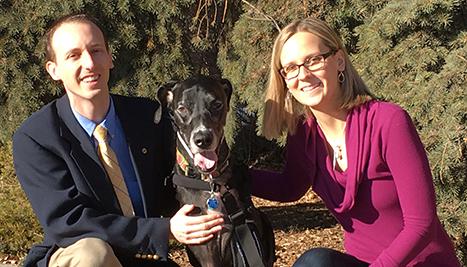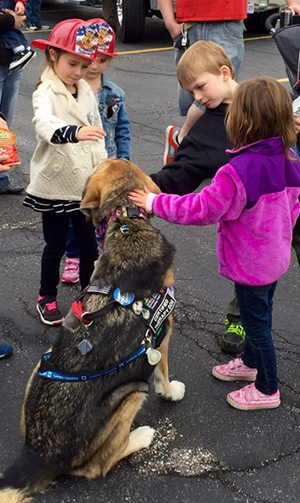Synopsis of the NCI Comparative Oncology Trial Consortium
The Comparative Oncology Trials Consortium (COTC) is an active network of nineteen academic comparative oncology centers, centrally managed by the NIH-NCI-Center for Cancer Research's Comparative Oncology Program, that functions to design and execute clinical trials in dogs with cancer to assess novel therapies. The goal of this effort is to answer biological questions geared to inform the development path of these agents for future use in human cancer patients. Trials conducted by the COTC are pharmacokinetically and pharmacodynamically rich with the product of this work directly integrated into the design of current human Phase I and II clinical trials. Our trials are carried at COTC member institutions, which currently include 19 sites. See examples of published COTC trials.
How We Operate
The NCI and COTC members sign a Memorandum of Understanding every 4 years to allow NCI to take the lead on dealings with all companies/institutions which have a desire to interact with the COTC. Following initial discussions between your company and the NCI, together we will determine if there is mutual interest in the study of your company’s drug by the COTC. NCI then will determine which COTC site(s) is most appropriate to conduct a trial of your drug. NCI adds value to this interaction by supplying trial design, oversight and data management at no cost to the study sponsor. NCI does not provide funding for the clinical management of our clinical trials. The study sponsor will execute financial agreements with the participating COTC site to cover the clinical management of cases. Clinical management for COTC vary in cost based on the study numbers, study schedule and collections/endpoints.
The process associated with the launch of a COTC study involves 4 distinct steps:
Following the completion of a two-way confidentiality and disclosure agreement between the CCR-Comparative Oncology Program and the trial sponsor, the Concept Discussion Phase begins. This phase allows the sponsor to convey the obstacles that currently exist in a drug development path and then allows the COP to discuss mechanisms that may allow a comparative and integrated approach that includes pet animals with cancer to answer these questions. An essential component of these early discussions is the identification of data necessary to support the rationale for a specific study. Both the COP and the sponsor will utilize this discussion phase to determine if there are reasons to halt discussions based on feasibility or inadequate data or support.
Following approval of the Trial Overview, the COP will initiate the Protocol and Data-base Build Phase. This includes:
development a clinical trial protocol
development of a clinical trials database in REDCap
completion of trial SOPs
selection of participating COTC sites
completion of ACUC approval at each participating COTC member
Assemble a Data Safety Monitoring Board (DSMB)
training of COTC sites on the protocol, SOPs, and database
Once completed the study is formally opened for accrual. The COP and sponsor are able to follow the progress of the trial in real-time through the web-enabled reporting system. Weekly conference calls are scheduled to discuss data as they emerge and institute protocol adjustments or modifications if needed. Following completion of the study, analysis of the data and next steps are considered. The COP and sponsor then determine what venues and mechanisms are optimal to present data to the community.

